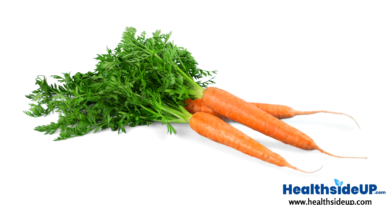Banana: A Nutrient-Packed Fruit with Health Benefits
Bananas are a popular and nutritious fruit that can be a valuable part of a healthy diet. They offer a wide range of benefits due to their nutritional content and versatility. Various types of Banana are produced in India. Here are some of the key reasons why bananas are important in a diet and its benefits. Here’s a closer look at the nutritional components of bananas and the benefits they provide.
Health Benefits of Bananas:
The high potassium and low sodium content in bananas help maintain healthy blood pressure levels, reducing the risk of stroke and heart disease.
The fiber in bananas supports regular bowel movements, reducing the risk of constipation. They also contain pectin, which aids digestion.
Bananas are a quick source of energy due to their natural sugar content, making them a great choice for athletes and those needing a pre- or post-workout snack.
The fiber in bananas promotes feelings of fullness, which can help control appetite and contribute to weight management.
Bananas have a low glycemic index, which means they have a relatively mild impact on blood sugar levels. This can help stabilize energy levels and reduce the risk of type 2 diabetes.
Bananas contain tryptophan, an amino acid that the body converts into serotonin, a neurotransmitter that can help improve mood and reduce symptoms of depression.
The vitamin C in bananas promotes collagen production, which is essential for healthy skin. It also has antioxidant properties that protect against skin damage.
Bananas contain folate, which is important for red blood cell production and can help prevent anemia.
The potassium in bananas helps prevent muscle cramps and aids in muscle recovery after exercise.
Potassium is also important for bone health, as it reduces the loss of calcium in urine and helps maintain bone density.
It’s important to note that bananas should be part of a balanced diet and not the sole source of nutrition. While they offer numerous benefits, variety in your diet is key to ensuring you get all the necessary nutrients.
Nutritional Content of Bananas :
Approximately 89 calories in 100 gm. Banana, High in carbohydrates, primarily natural sugars (glucose, fructose, and sucrose) and dietary fiber. Bananas are a good source of dietary fiber, with about 2.6 grams per 100 grams. Fiber aids in digestion, helps regulate blood sugar levels, and contributes to feelings of fullness. Bananas are particularly rich in several vitamins, like1) Vitamin C: An antioxidant that supports the immune system and skin health. 2) Vitamin B6 (Pyridoxine): Important for brain development and function, as well as the metabolism of carbohydrates and proteins. 3) Folate (Vitamin B9): Essential for DNA synthesis and cell growth. Minerals: Bananas are a good source of potassium, with about 358 mg per 100 grams. Potassium is important for heart health, muscle function, and blood pressure regulation. Bananas contain a small amount of protein (about 1.1 grams per 100 grams). Fat: Bananas are nearly fat-free.
Some types of Bananas :
Cavendish Banana: This is the most common banana variety found in India and worldwide. It is known for its bright yellow color, mild flavor, and uniform size. It’s often eaten fresh or used in cooking and baking.
Robusta Banana: Also known as the ‘Nendran’ banana, this variety is popular in South India, especially in Kerala and Tamil Nadu. It’s larger and starchier than the Cavendish banana and is often used for making chips and traditional Indian dishes.
Rajapuri Banana: This is a popular dessert banana in India, known for its sweet flavor and smaller size. It’s commonly consumed fresh or used in desserts.
Poovan Banana: These bananas are smaller and have a unique tangy-sweet flavor. They are used in various Indian dishes and are also a favorite choice for making banana chips.
Yelakki Banana: Yelakki bananas are smaller and sweeter than Cavendish bananas. They are often used as a snack or in fruit salads.
Gros Michel Banana: Though not as commonly grown as Cavendish, Gros Michel bananas are available in some regions of India. They are similar in appearance to Cavendish but have a slightly different flavor.
Karpuravalli Banana: Also known as the ‘Virupakshi’ banana, this variety is found in parts of Tamil Nadu and Karnataka. It has a unique camphor-like aroma and is often used for making traditional dishes.
Monthan Banana: These are large, green bananas commonly found in Karnataka. They are typically used in cooking due to their starchy nature.
Red Banana: These bananas have a reddish-purple skin and a sweet, creamy texture. They are often eaten fresh or used in desserts and milkshakes.
Malbhog Banana: Grown mainly in West Bengal, these small, sweet bananas are popular for their unique taste and aroma.
Karpuravalli Banana: This variety is known for its distinctive aroma, resembling camphor. It is commonly used in traditional Indian cooking.
Pisang Awak: Also known as the ‘Elaichi’ banana, this variety is known for its small size and strong, sweet flavor. It’s often used in Indian sweets and desserts.
Palayamkodan Banana: These bananas are commonly found in Kerala and are known for their sweet taste and unique aroma.


